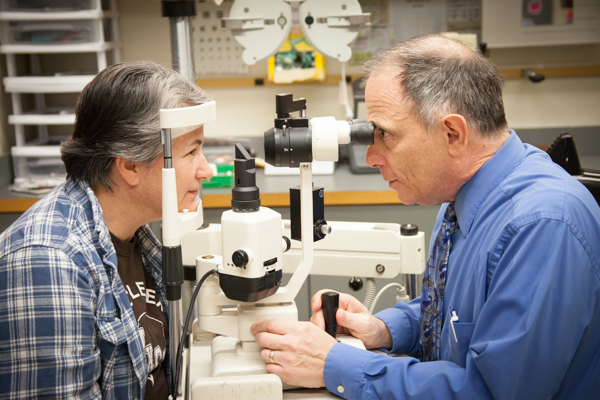Understanding the Different Eye Conditions Treated by Specialized Eye Care Professionals
In the world of eye treatment, specialized experts play a crucial role in diagnosing and treating a wide range of eye conditions. From common refractive errors that affect vision clarity to age-related conditions that pose challenges as we age, the knowledge of these experts includes managing vision-threatening diseases and intricate corneal disorders. The intricacies of neurological eye conditions present unique obstacles that require specialized care. As we start this expedition of the different eye conditions addressed by specialized eye treatment experts, it becomes evident that the intricate internet of ocular health holds a myriad of remarkable insights waiting to be uncovered.
Usual Refractive Errors
Refractive mistakes are common visual conditions triggered by a flaw in the eye's capacity to appropriately concentrate light, resulting in blurred vision. Astigmatism is characterized by an irregularly shaped cornea, resulting in distorted or blurred vision at all distances. Presbyopia is an age-related condition where the lens loses its versatility, making it challenging to focus on close items.
These refractive mistakes can be remedied with various methods, consisting of glasses, contact lenses, or refractive surgery. Eye treatment experts play a vital function in diagnosing and taking care of refractive mistakes to help people accomplish clearer vision and boost their lifestyle.
Age-Related Eye Conditions
As people age, their eyes may be at risk to a range of conditions past refractive errors that can influence their vision and general eye health and wellness. Age-related eye conditions prevail and can considerably affect the high quality of life for older adults. Among the most common age-related eye conditions is age-related macular deterioration (AMD), a disease that triggers main vision loss and can make activities like analysis and driving challenging. refractive surgeries in al. Cataracts, an additional common problem amongst older people, cause clouding of the eye's all-natural lens, leading to obscured vision. Glaucoma, characterized by damages to the optic nerve, is additionally much more widespread with age and can result in outer vision loss or loss of sight if left neglected. In addition, presbyopia, a condition where the eye's lens loses versatility, is an all-natural part of aging and causes trouble focusing on close objects. Routine eye tests with specialized eye treatment professionals are vital for very early detection and management of these age-related eye conditions to protect vision and keep eye health as individuals grow older.
Vision-Threatening Diseases
Vision-threatening diseases encompass a variety of serious eye problems that have the possible to dramatically influence a person's vision and general visual function. These conditions posture a danger of long-term vision loss if not quickly diagnosed and dealt with by specialized eye treatment experts. Some common vision-threatening conditions consist of glaucoma, diabetic retinopathy, age-related macular degeneration (AMD), and retinal detachment.
Glaucoma is a team of eye problems that damage the optic nerve, often due to high intraocular stress, leading to peripheral vision loss and prospective loss of sight if left without treatment. AMD is a progressive condition influencing the macula, leading to central vision loss.
Very early detection, routine eye tests, and you can find out more timely treatment are essential in taking care of vision-threatening diseases to protect sight and maintain high quality of life. Specialized eye treatment professionals play a crucial function in diagnosing, dealing with, and managing these conditions to stop irreparable vision loss.

Corneal Conditions
Corneal problems incorporate a spectrum of problems that influence the clear Visit Your URL front part of the eye, referred to as the cornea. These problems can cause discomfort, visual disruptions, and in extreme situations, vision loss. One usual corneal disorder is keratoconus, where the cornea thins and protrudes outward right into a cone shape, causing astigmatism and blurred vision. Corneal dystrophies, such as Fuchs' dystrophy, cause gradual vision loss as a result of irregular down payments in the cornea. Corneal abrasions, typically triggered by injury or international things, can cause pain, inflammation, and level of sensitivity to light. Additionally, infections like keratitis can irritate the cornea, possibly leading to scarring and vision disability otherwise without delay treated. Therapy for corneal problems varies depending upon the certain problem but may include medicines, get in touch with lenses, or in extreme cases, corneal transplants. Regular eye exams are necessary for very early discovery and monitoring of corneal disorders to preserve vision and eye health.
Neurological Eye Problems
Neurological eye conditions involve disorders that influence the link between the eyes and the brain, influencing aesthetic handling and total eye function. These conditions can manifest in numerous methods, affecting vision, eye movements, and also the control between the eyes. One usual neurological eye problem is optic neuritis, defined by inflammation of the optic nerve leading to vision loss, shade desaturation, and pain with eye movement.
An additional considerable condition is nystagmus, where the eyes make recurring, unrestrained movements, influencing visual acuity and deepness perception. In addition, problems like amblyopia, typically referred to as "careless eye," result from uncommon visual growth in early childhood, causing decreased vision in one eye.
Neurological eye problems require customized care from specialists like neuro-ophthalmologists who have proficiency in both neurology and ophthalmology. Medical diagnosis commonly involves a thorough eye evaluation, imaging researches, and collaboration with specialists to address the underlying neurological problems influencing the visual system. Therapy approaches can include drug, vision therapy, or in serious instances, medical interventions to handle these intricate conditions efficiently.

Final Thought
Finally, specialized eye treatment professionals treat a vast array of eye problems, including usual refractive errors, age-related eye conditions, vision-threatening diseases, corneal conditions, and neurological eye problems - refractive surgeries in al. By understanding these numerous conditions and seeking ideal treatment from eye care professionals, individuals can preserve optimum eye health and vision. It is very important to focus on regular eye assessments and adhere to recommended treatment plans to visit this site maintain and protect one's vision for the future